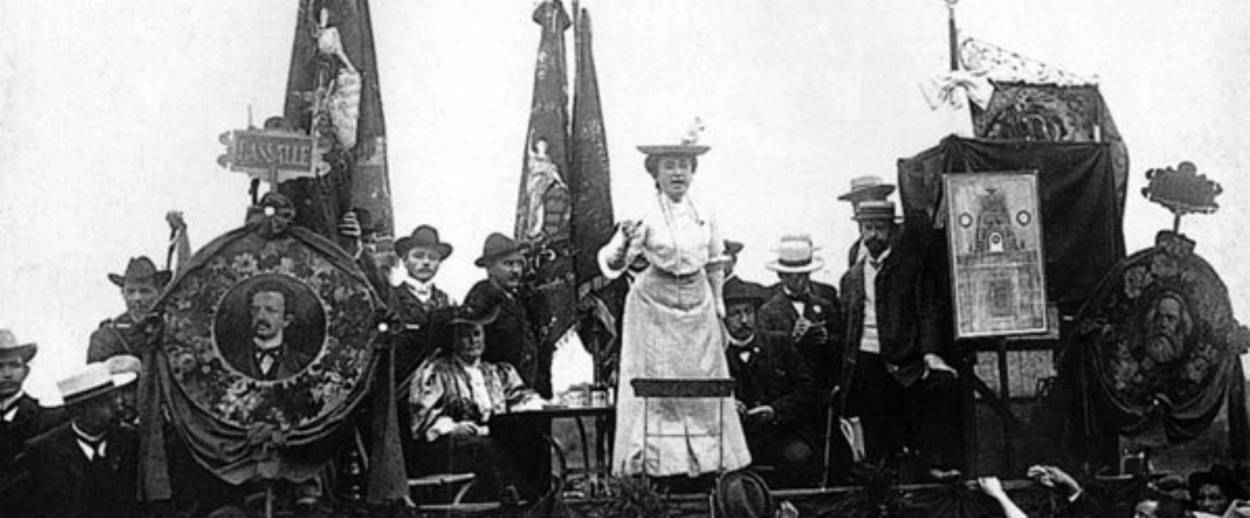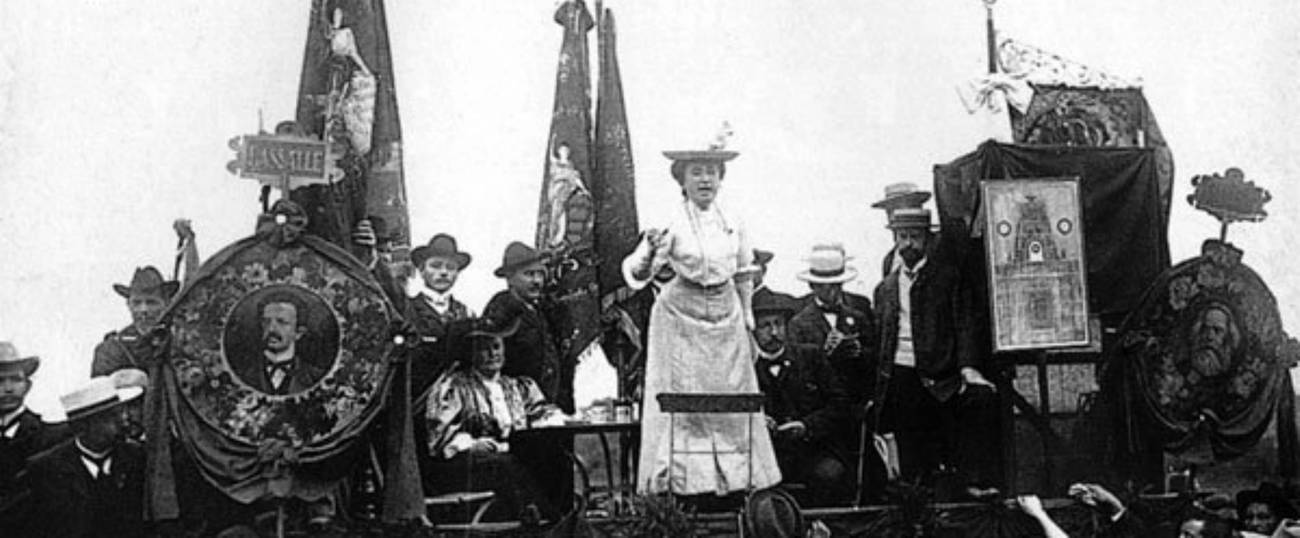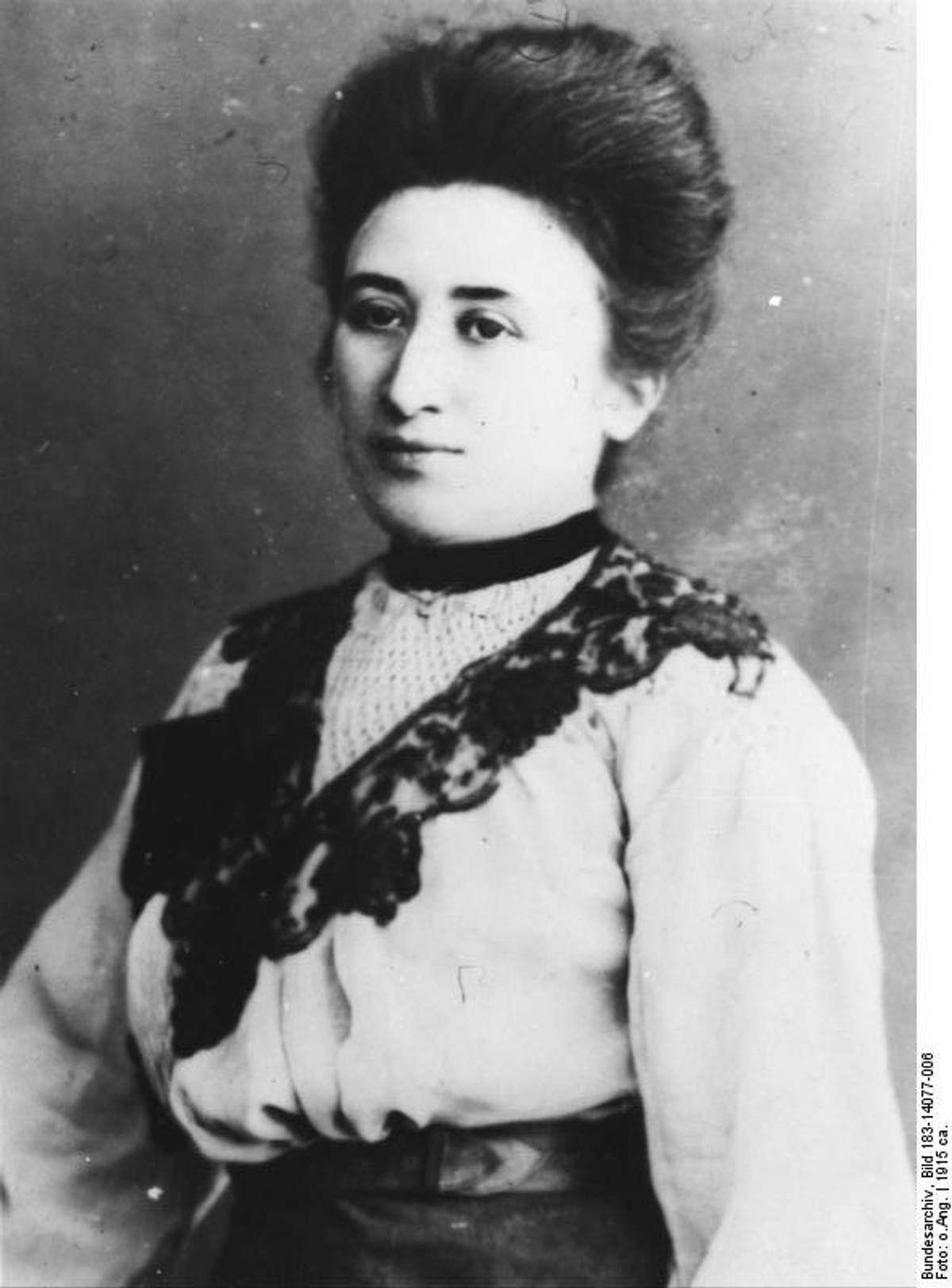Actually, Rosa Luxemburg Was Not a Self-Hating Jew
Contrary to what is widely believed, the Polish-Jewish anti-war activist was first and foremost a humanist, and both a victim and active opponent of anti-Semitism




Joseph Telushkin’s article, “Black Lives Matter and Self-Hating Jews,” published on Tablet yesterday, put forth a long-held claim that Polish-Jewish-German revolutionary Rosa Luxemburg was the archetypal “self-hating Jew.” I take issue here with the characterization of Luxemburg as a self-hating Jew and dispute much of the evidence provided by Telushkin.
In Telushkin’s piece, he begins by describing Luxemburg as “one of the most famous” self-hating Jews. It is true that Luxemburg has often been labeled as such (from her opponents in the Jewish Bund in the Russian Empire onwards), but the accusation itself is utterly false. Telushkin writes:
When approached to denounce anti-Jewish pogroms, [Luxemburg] responded with this heartwarming declaration: “Why do you come to me with your special Jewish sorrows?… I cannot find a special corner in my heart for the ghetto. I feel at home in the entire world wherever there are clouds and birds and human tears.”
This quote is from Luxemburg’s February 16, 1917 letter to her friend, the German-Jewish socialist and feminist Mathilde Wurm. She wrote it in her prison cell during World War I, where she was held under “protective custody” for her anti-war activities. Wurm had recommended that Luxemburg read the 17th-century Jewish philosopher Spinoza and had apparently written of the “special suffering of the Jews.” Luxemburg, who raised in a religious Jewish home in Warsaw which was nevertheless strongly acculturated into Polish culture and influenced by the Haskalah (Jewish Enlightenment), rejected the idea that Jewish suffering was any more (or less) worthy of sympathy than other human suffering. Consider a fuller quote from her letter to Wurm:
Above all one must at all times live as a complete human being […] read only the good ones, not such kitsch as the “Spinoza novel” which you sent me. What do you want with this theme of the “special suffering of the Jews”? I am just as much concerned with the poor victims on the rubber plantations of Putumayo, the Blacks in Africa with whose corpses the Europeans play catch […] they resound with me so strongly that I have no special place in my heart for the ghetto. I feel at home in the entire world, wherever there are clouds and birds and human tears.”

Luxemburg was certainly not responding to a request to “denounce anti-Jewish pogroms” as Telushkin claims. Rather, she was expressing her strongly held internationalism and humanism. In reality, Luxemburg was the victim of anti-Semitic attacks throughout her life in both Poland and Germany. She campaigned against anti-Semitism consistently and the party she led, the Social Democracy of the Kingdom of Poland and Lithuania (SDKPiL) was in the vanguard of opposition to anti-Semitism in the Russian Empire. This has been documented by the Polish scholar Wiktor Marzec in a number of articles, and in my own published articles and doctoral research.
Telushkin also claims that Luxemburg was “indifferent” to the death of her mother and quotes a letter from her father: “An eagle soars so high he loses sight of the earth below… I shall not burden you any more with my letters.”
The author presumably takes this from Elżbieta Ettinger’s 1987 biography of Luxemburg, which dramatized and rather distorted Luxemburg’s familial relations. In fact, Luxemburg was devastated by her mother’s death, as is clear from numerous letters to and from her closest family and friends. Furthermore, Luxemburg’s mother died in September 1897, while the letter from Luxemburg’s father that Telushkin quotes is from April 1900 and had nothing to do with Luxemburg’s late mother. In fact, it reflected the sadness of an elderly dying man at not being able to see his daughter in his final years. This single letter has unfortunately been misused to present a totally false picture of the relationship between Luxemburg and her father. In reality, she personally nursed him during his final illness and he was immensely proud of his daughter’s achievements. Luxemburg maintained very close relations with all of her family, some of whom remained within the official Jewish community and some who left it.
Telushkin is correct in saying that Lenin wrote of Luxemburg as an “eagle.” What he misses, however, is the complexity of the political relationship and ideological differences between Luxemburg and Lenin, which have been the subject of much scholarly attention and discussion. Telushkin then moves straight to Stalin, implying a link between Luxemburg and the anti-Semitic and murderous tyrant. In fact, Stalin purged the Communist movement of “Luxemburgian” ideas, such as the central relationship between democracy and socialism, the importance of the spontaneity of the masses, and socialist internationalism. In addition, Stalin and the NKVD dismissed her democratic socialism, and ruthlessly persecuted and murdered her family, friends, and comrades.
I will leave the comments about Marx as a self-hating Jew to others.
The late Professor Robert Wistrich, the eminent scholar of anti-Semitism and Jewish self-hatred, wrote as long ago as 1977 (see: his article “The Jewish Origins of Rosa Luxemburg,” published in the journal Olam) that Luxemburg “does not appear to have suffered from the obvious symptoms of self-hatred.” Nevertheless, the image of Luxemburg as the archetypal “self-hating Jew” remains commonplace. Whatever the rights and wrongs of using this term, it is unfortunate that distortions about Rosa Luxemburg’s Jewish identity remain widespread.
Rosa Luxemburg was both a victim and active opponent of anti-Semitism. Her witnessing of the terrible Warsaw pogrom of 1881 as a 10-year-old schoolgirl was in fact a major factor in her political awakening. Such accusations as those put forth by Telushkin and repeated elsewhere, must now be challenged in the light of new research, scholarship, and understanding of Luxemburg’s Jewish identity.
Dr. Rory Castle Jones was awarded a PhD for his thesis ‘A Study of the Identity, Family, and Background of Rosa Luxemburg 1871-1919’ by Swansea University in 2016. He is a member of the Advisory Board of The International Rosa Luxemburg Society, and is co-editing the fourth volume of The Complete Works of Rosa Luxemburg.